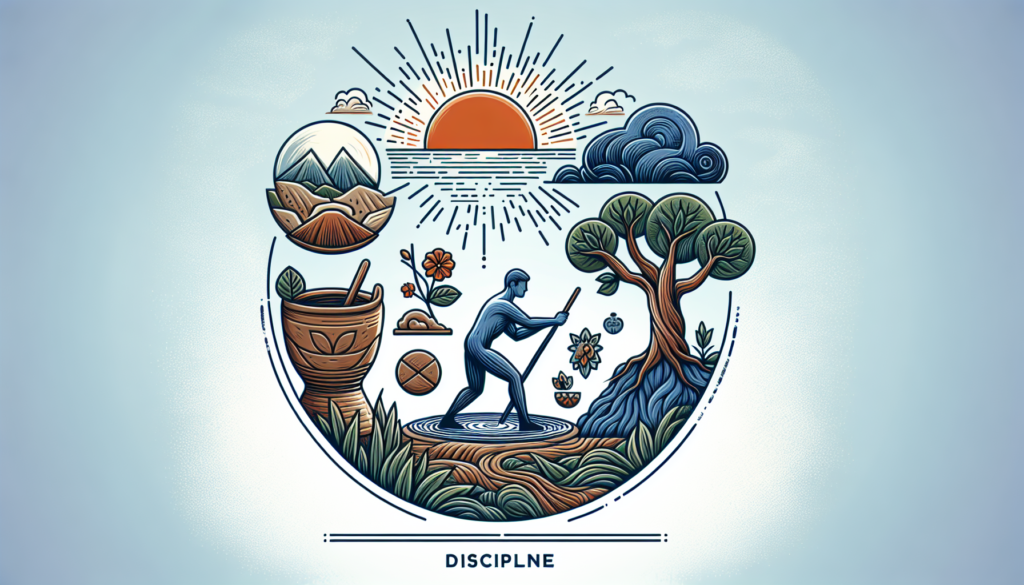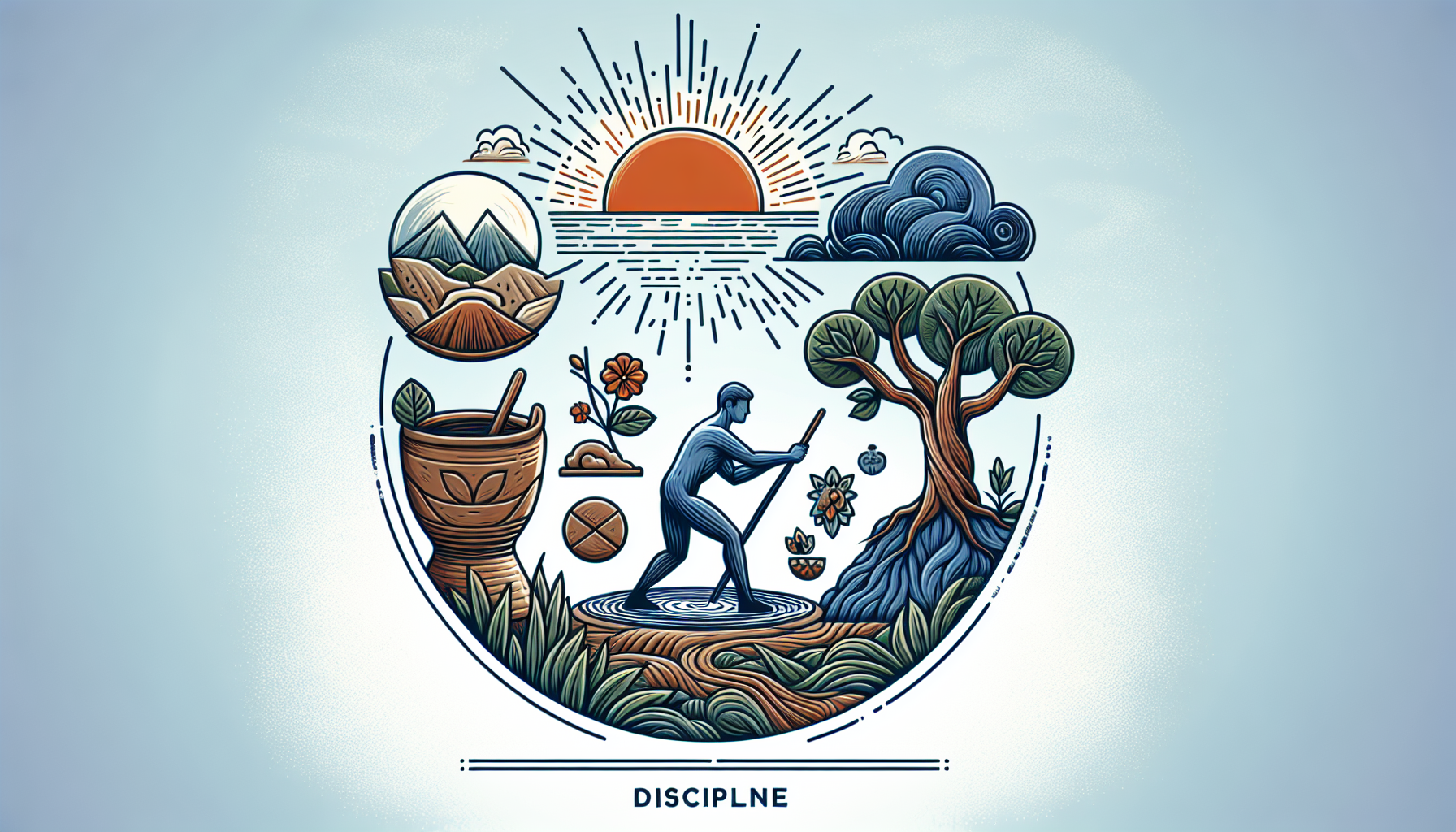The Role Of Discipline In Personal Development
In your journey of personal growth and self-improvement, discipline plays a crucial role that cannot be overlooked. It acts as the guiding force that propels you towards achieving your goals, enhancing your skills, and ultimately transforming your life. With discipline, you cultivate the habits necessary to maintain focus, consistency, and perseverance. By exercising discipline in various aspects of your life, from time management to goal setting, you lay the foundation for personal development and unlock your full potential. Discover how discipline can shape your character, boost your productivity, and pave the way for success in this article.
The Role Of Discipline In Personal Development

Definition of Discipline
Discipline refers to the ability to control and regulate one’s behavior, actions, and thoughts in order to achieve desired outcomes. It involves setting clear goals, making sacrifices, and consistently taking actions that align with those goals. Discipline is about staying focused, being determined, and maintaining a strong sense of commitment. It is the foundation upon which personal development is built.
Discipline as a Foundation for Personal Development
Discipline serves as the fundamental pillar in personal development. It provides the structure and guidance necessary for individuals to grow and improve themselves. Without discipline, it is easy to lose sight of our goals and become complacent. It is through discipline that we can cultivate good habits, eliminate negative ones, and consistently work towards our personal and professional aspirations.
Developing Self-Discipline
Self-discipline is the ability to exert control over our own actions, desires, and impulses. It is a skill that can be developed and honed over time. Developing self-discipline requires self-awareness, self-motivation, and the willingness to make sacrifices. By setting realistic goals, creating a routine, and holding ourselves accountable, we can strengthen our self-discipline and achieve greater success in all areas of life.
Time Management and Discipline
Discipline is closely intertwined with effective time management. By managing our time wisely, we can ensure that we allocate sufficient time to prioritize our goals and tasks. It involves setting clear priorities, creating a schedule, and adhering to it. When we exercise discipline in managing our time, we become more efficient and productive, enabling us to achieve our objectives more effectively.

Goal Setting and Discipline
Discipline plays a crucial role in goal setting. Without discipline, goals remain idle dreams with no progress or accomplishment. By practicing discipline, we can break down our long-term goals into smaller, manageable steps. This approach allows us to stay focused, motivated, and committed to the actions required to achieve our goals. Discipline helps us overcome obstacles, maintain momentum, and celebrate the milestones along the way.
Health and Fitness through Discipline
Discipline is vital in maintaining a healthy lifestyle. It takes discipline to adopt and maintain healthy habits such as regular exercise, a balanced diet, and adequate sleep. By consistently making healthy choices, we can improve our physical and mental well-being. Discipline helps us resist temptations, overcome laziness, and stay committed to our health and fitness goals. It empowers us to lead a more fulfilling and active life.
Discipline in Learning and Education
Discipline is crucial for success in learning and education. It requires discipline to set aside dedicated time for studying, to concentrate on challenging subjects, and to persist through difficult tasks. By applying discipline to our learning endeavors, we can enhance our knowledge and skills. Discipline enables us to establish effective study habits, maintain focus, and achieve academic success.
Discipline in Overcoming Challenges
Challenges and obstacles are inevitable on the path to personal development. It is discipline that allows us to face these hurdles head-on and persevere. By maintaining a disciplined mindset, we can overcome fear, doubt, and setbacks. Discipline helps us stay motivated, adopt a positive attitude, and learn from our failures. It is through discipline that we can turn challenges into opportunities for growth and self-improvement.
Discipline in Building Relationships
Discipline is not limited to personal growth; it extends to our interactions with others as well. Building meaningful and fulfilling relationships requires discipline in terms of communication, understanding, and compromise. By practicing discipline in our relationships, we can cultivate trust, respect, and empathy. Discipline helps us set boundaries, demonstrate patience, and navigate conflicts constructively. It is through discipline that we can foster stronger and more profound connections with those around us.
Discipline and Emotional Intelligence
Discipline and emotional intelligence go hand in hand. Emotionally intelligent individuals possess the discipline to manage their emotions effectively. They exhibit self-control, empathy, and resilience in dealing with their emotions as well as the emotions of others. Discipline allows us to pause and reflect before reacting impulsively. It helps us make wise decisions, build healthy relationships, and maintain a positive outlook on life.
Conclusion
Discipline is an essential ingredient in personal development. From self-discipline to time management, goal setting to health and fitness, discipline permeates every aspect of our lives. It provides the framework and structure needed to achieve our aspirations and lead a fulfilling life. By cultivating discipline, we become empowered to make positive changes, overcome challenges, and become the best versions of ourselves. So embrace discipline as your guiding light on the path to personal development, and watch as you transform into the person you have always aspired to be.







